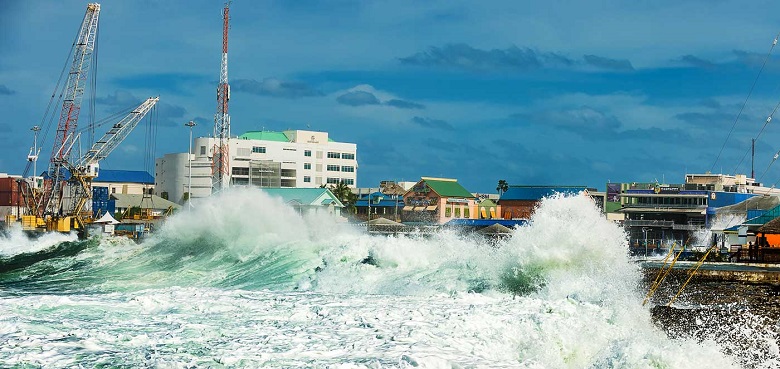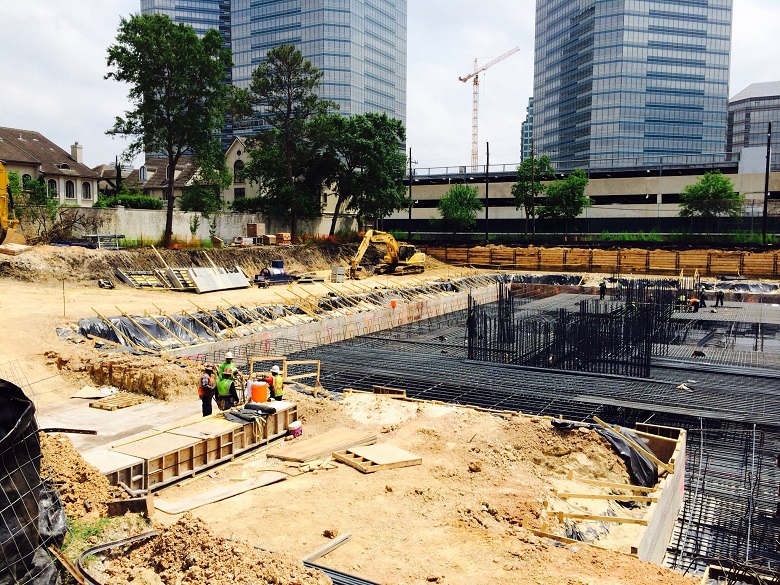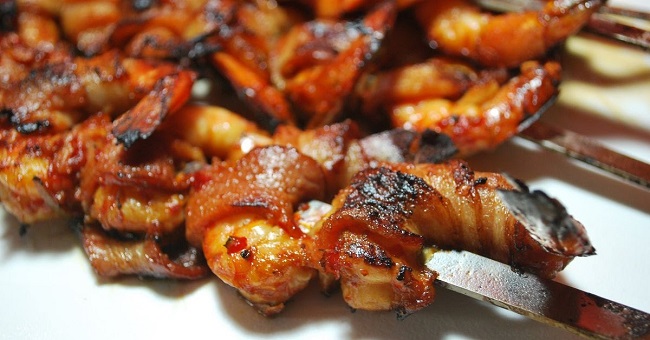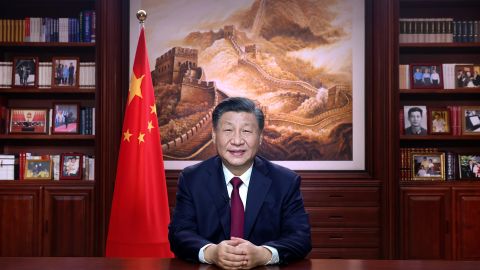Rough Seas – George Town in a Storm

This is part of my ongoing audiobiography series. The seas can sink your ship or test your metal. Sometimes in life, the storms that come your way are the best things that can happen to you.

This is part of my ongoing audiobiography series. The seas can sink your ship or test your metal. Sometimes in life, the storms that come your way are the best things that can happen to you.

This is the continuation of my audiobiography. In this edition, we talk about my experiences in the Mexico and Texas real estate markets.

It’s not exactly the meaning of life but as my bacon wrapped barbecued shrimp went into national distribution, I learned more than I ever wanted to know about international supply and distribution. This is a continuation of my autobiography offerings on Radio Free Wall Street.

I’ve decided to start a new product. I am going to do an audio autobiography and take you through some of the adventures of my life. It’s something I’ve wanted to do for a long time but now the time is right. The events will not be in sequential order but bounce back and forth. It’s something that’s been on my heart to do and I hope you enjoy it.
Xi had previously staked his political legitimacy on zero-Covid. Now, as his costly strategy gets dismantled in an abrupt U-turn following nationwide protests against it, many are left questioning his wisdom. The protests, which in some places saw rare demands for Xi and the Communist Party to “step down,” may have ended, but the overriding sense of frustration has yet to dissipate.

China is facing an international backlash amid reports of an unchecked surge in COVID-19 cases in the country, as well as criticism over the government’s decision to stop providing daily COVID data. A growing number of countries, including the U.S., have announced COVID-testing requirements for people traveling from China, as the outbreak there increases the risk that new coronavirus variants could emerge and spread The U.S. Centers for Disease Control and Prevention said Wednesday that it was implementing a requirement for a negative COVID-19 test or documentation of recovery for passengers from China, Hong Kong and Macau boarding flights to the U.S.
“CDC is announcing this step to slow the spread of COVID-19 in the United States during the surge of COVID-19 cases in the [People’s Republic of China] given the lack of adequate and transparent epidemiological and viral genomic sequence data being reported from the PRC,” the agency said in a statement. “These data are critical to monitor the case surge effectively and decrease the chance for entry of a novel variant of concern.”
Japan said that starting Dec. 30, a COVID-19 test will be required on arrival for those who have stayed in China. excluding Hong Kong and Macau, within seven days of arrival, and for all who arrive directly from China, again excluding Hong Kong and Macau. Those who do test positive will be required to isolate at a government-designated facility.The European Union said it is assessing the surge in cases in China and would be will ready to use the “emergency brake” if necessary, the Associated Press reported. The EU tried to soothe fears, however, by saying the BF.7 omicron variant that was prevalent in China was already active in Europe and does not pose an immediate danger. Italy is already requiring COVID tests for all airline passengers arriving from China. More than half of those tested on arrival at Milan’s Malpensa Airport in recent days have tested positive, the AP reported. India and South Korea have also announced test mandates for airline passengers arriving from China. Meanwhile, in the U.S., new cases and deaths have been falling, while hospitalizations and test-positivity rates are increasing. The seven-day average of new COVID cases fell to a three-week low of 64,410 on Wednesday, according to a New York Times tracker. That’s down from a recent peak of 70,508 on Christmas Eve and down 2% from two weeks ago. The New York Times tracker cautioned that reports for cases and deaths could be artificially low this week as U.S. officials who track the data take time off over the holidays. Hospitalization data, which is not typically affected by holiday breaks, is more reliable. The daily average of COVID-related hospitalizations rose to 40,497 from 39,880 on Tuesday and has increased 1% from two weeks ago. And more worrisome, the number of COVID patients in intensive-care units jumped 10% from two weeks ago to 4,997, the most since early August. The test-positivity rate rose to above 14% on Wednesday, a four-month high, and has increased by 18% in two weeks. Higher test-positivity rates suggest that many new COVID cases, such as those found through at-home testing, are not being reported to official case trackers, the New York Times said. NN: its not time to breath a sign of relief. My Bet is the new variants being generated in China will see Frankenstein’s return. Bigger and badder then ever.
BEIJING (AP) — The death toll in the latest COVID-19 surge in China’s capital Beijing has risen incrementally, as feverish clinic patients and an increase in the funeral business point to a widening outbreak after an easing of strict virus containment regulations.
Unofficial reports suggest a widespread wave of new coronavirus cases, and relatives of victims and people who work in the funeral business said deaths tied to COVID-19 were increasing. Those people spoke on condition of not being identified for fear of retribution, official policy and the direction of the latest outbreak remain cloaked in uncertainty and confusion.
The National Health Commission on Tuesday said five newly recorded fatalities, all in Beijing, had taken the country’s total death toll to 5,242 — relatively low by global standards but potentially set to increase substantially following moves by the government to step away from the “zero-COVID” policy of lockdowns, quarantines and compulsory testing that has staggered the economy and prompted rare anti-government protests. With people testing and recuperating at home, China has said it is no longer possible to keep an accurate count of new case numbers, making it substantially more difficult to gauge the state of the current wave of infection and its direction. Some scientific models have estimated numbers will rise with an eventual death toll in the tens or hundreds of thousands. China is trying to persuade reluctant seniors and others at risk to get vaccinated, apparently with only moderate success. Vaccination centers visited over recent days have been largely empty and there has been no major publicity drive in the entirely state-controlled media. The other major concern is shoring up health resources in smaller cities and the vast rural hinterland ahead of January’s Lunar New Year travel rush, which will see migrant workers returning to their hometowns. Numbers of fever clinics have been expanded in both urban and rural areas and people have been asked to stay home unless seriously ill to preserve resources. Hospitals are also running short on staff, and reports say workers have been asked to return to their posts as long as they aren’t feverish. Chinese health authorities count only those who died directly from COVID-19, excluding deaths blamed on underlying conditions such as diabetes and heart disease that raise risks of serious illness. In many other countries, guidelines stipulate that any death where the coronavirus is a factor or contributor is counted as a COVID-19 related. China had long hailed its restrictive “zero-COVID” approach as keeping case numbers and deaths relatively low, comparing itself favorably to the U.S., where the death toll has topped 1.1 million. Yet the policy of lockdowns, travel restrictions, mandatory testing and quarantines placed China’s society and the national economy under enormous stress, apparently convincing the ruling Communist Party to heed outside advice and alter its strategy.
NN BlackMask Pod Cast:
SHANGHAI, Dec 19 (Reuters) – COVID-19 is sweeping through trading floors in Beijing and spreading fast in the financial hub of Shanghai, with illness and absence thinning already light trade and forcing regulators to cancel a weekly meeting vetting public share sales. Many banks and asset managers have dusted off plans devised to cope with previous COVID crises, injecting another layer of unpredictability into currency and stock markets, where the outlook is clouded by a rocky exit from strict health curbs. With mass testing halted after abruptly dropped its zero-COVID policy earlier this month, official data no longer reliably capture new case numbers. Internal surveys by several big asset managers and banks suggest more than half of their employees in Beijing, the epicentre of the virus surge, have tested positive. “I would say more than half of colleagues in Beijing are sick, compared with 5%-10% in Shanghai,” said a fund manager at PICC Asset Management, declining to be named as he’s not authorised to speak to the media. NN: I am told this is the most deaths and infections the Chinese have seen to date. They cannot hide the elephant in the room.
BEIJING, Dec 19 (Reuters) – China’s business confidence fell to its lowest since January 2013, a survey by World Economics showed on Monday, reflecting the impact of surging COVID-19 cases on economic activity with the abrupt lifting of many pandemic control measures. The index fell to 48.1 in December from 51.8 in November, showed the World Economics’ survey of sales managers at over 2,300 companies conducted Dec. 1-16. The index was the lowest since the survey began in 2013. The survey results were among the first indicators of how business sentiment has taken a hit in the world’s second-biggest economy, after the sharp relaxation of strict COVID containment measures on Dec. 7 triggered a still-growing wave of domestic COVID cases across China. “The survey suggests strongly that the growth rate of the Chinese economy has slowed quite dramatically, and may be heading for recession in 2023,” World Economics said. China’s GDP is expected to grow just 3% this year, its worst performance in nearly half a century. The survey showed business activity fell sharply in December with the sales managers indexes in Manufacturing and Service Sectors both below the 50 level. “The percentage of companies that claim to be currently negatively impacted by COVID has risen to a survey high, with more than half of all respondents now suggesting their operations are being harmed in one way or another,” the London-based data provider said. China has recently dismantled some key parts of the world’s toughest anti-COVID curbs and lockdowns. The measures were championed by President Xi Jinping but impaired the economy and sparked popular protests unprecedented in his decade-long rule. The top leaders and policymakers will focus on stabilising the economy in 2023 and step up policy adjustments to ensure key targets are hit, according to an agenda-setting meeting ended on Friday. “It may take at least another quarter before things turn around,” said Dan Wang, chief economist at Hang Seng Bank China. “Many small businesses have run out of liquidity, especially restaurants, gyms, hotels and other city services.” NN: Markets are not pricing in the coming crash in China. The worst of the COVID crises will hit after golden week in February. And it will not be a quick reversal out of it either…….
The country is seeing a surge in cases since the lifting of its most severe restrictions earlier this month. The latest official figures appear to show a relatively low number of new daily cases. However, there are concerns that these numbers are an underestimate due to a recent reduction in Covid testing. The government reported only 2,097 new daily cases on Sunday. Epidemiologist Wu Zunyou has said he believes the current spike in infections would run until mid-January, while the second wave would then be triggered by mass travel in January around the week-long Lunar New Year celebrations which begin on 21 January. Millions of people usually travel at this time to spend the holiday with family.
The third surge in cases would run from late February to mid-March as people return to work after the holiday, Dr Wu said.
He told a conference on Saturday that current vaccinations levels offered a certain level of protection against the surges and had resulted in a drop in the number of severe cases. Overall, China says more than 90% of its population has been fully vaccinated. However, less than half of people aged 80 and over have received three doses of vaccine. Elderly people are more likely to suffer severe Covid symptoms. China has developed and produced its own vaccines, which have been shown to be less effective at protecting people against serious Covid illness and death than the mRNA vaccines used in much of the rest of the world.
Dr Wu’s comments come after a reputable US-based research institute reported earlier this week that it believed China could see over a million people die from Covid in 2023 following an explosion of cases.
The government hasn’t officially reported any Covid deaths since 7 December, when restrictions were lifted following mass protests against its zero-Covid policy.
That included an end to mass testing. China’s largest city, Shanghai, has ordered most of its schools to take classes online as cases soar. However, there are anecdotal reports of deaths linked to Covid appearing in Beijing.
Hospitals there and in other cities are struggling to cope with a surge, which has also hit postal and catering services hard. NN: I stand on my prediction of massive China shutdowns because so many people will be unable to work. AND this is key to our binary oil trade. And as far as China vaccines the original vaccine they developed and are still using is virtually useless against new variants.